Biodiversity and ecology
UWE Bristol campuses cover an area of 150 hectares (1.5 KM2), with large areas of Glenside Campus and Bower Ashton designated as conservation areas.
In 2020 UWE Bristol declared a climate and ecological emergency and developed a landscape and biodiversity action plan to respond to the crisis. In 2024 we signed up to be a Nature Positive university, joining a growing bank of higher education institutions around the world.
Working with the natural environment to maximise biodiversity, our Grounds team use sustainable gardening techniques to create beautiful spaces for students and staff to use for leisure, for study and for practical experience.
Read on to learn about the many ways we are supporting biodiversity across campus and how you can get involved.
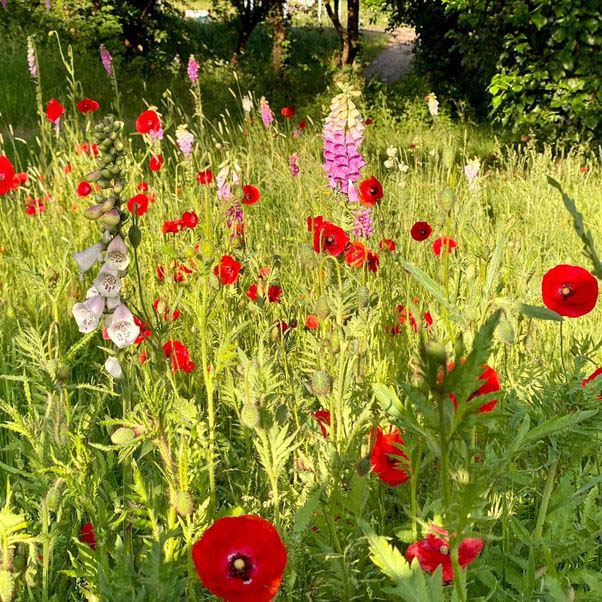
What are UWE Bristol doing to support biodiversity?
We are developing diverse ecosystems in numerous ways.
- Meadowscaping areas of grass at Frenchay Campus and Glenside Campus - mown only two or three times a year to benefit wildlife and bring nature closer to people.
- Increasing artificial habitats for bats, birds, butterflies and ladybirds by providing appropriate planting, roosting and nesting boxes, and feeding stations.
- Improving biodiversity and edible planting at all of our campuses, including mini orchards, native bulb planting, herb planting and creation of wildlife habitats.
- Reviving and replanting the old walled garden by the Farmhouse at Frenchay Campus, where students and staff can relax, socialise and study.
- Continuing the evolution of the community garden and improving disabled access.
- Developing an on-site plant nursery, producing key pollinator plants, such as thyme and rosemary, and a native tree sapling nursery.
- Processing an increasingly large percentage of our green waste on site into compost for reuse in the grounds.
- Using 100% peat-free compost and growing mediums.
- Using electric vehicles and tools: more than 90% of our grounds maintenance tools are now electric-powered, including lawnmowers and buggies, resulting in less noise and air pollution.
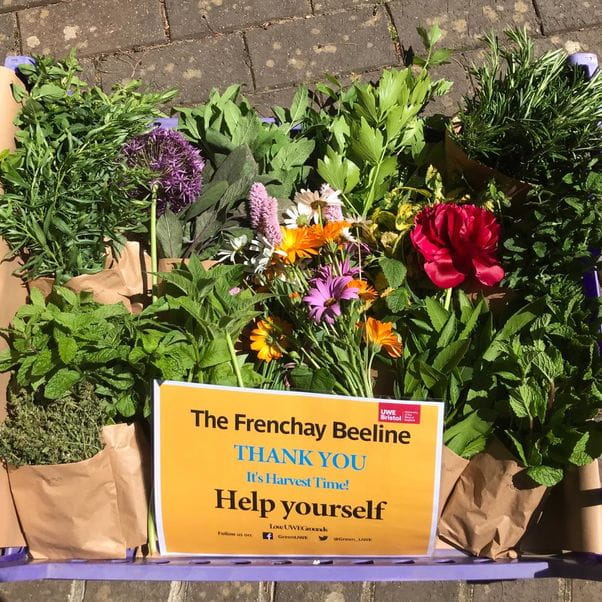
The Frenchay Beeline
The award-winning Frenchay Beeline is a scheme to bring nature into the heart of the Frenchay Campus, introducing plants that are edible pollinators in more than 30 locations.
Our staff, students and visitors have access to free herbs, seasonal fruit and vegetables, while also helping to enhance biodiversity in the local area.
Planting schemes have been designed around ten key edible pollinators. This core planting is supplemented by seasonal edibles and high performing pollinator plants on a continuous basis throughout the year.
In the last few years, we've been working to extend the Beeline to all campuses.
Beeline video
Find out more about this sustainability project at Frenchay Campus.
What you can do - relax, socialise, walk, garden
- Take a walk around Frenchay Campus, taking in a range of sustainability and biodiversity features using our Green Campus map or explore Glenside Campus with our Glenside Green Campus map. If your student or staff group would like a walk or talk specifically for you, please email sustainability@uwe.ac.uk.
- Use our community garden to grow your own vegetables. Individual or group plots available — please email sustainability@uwe.ac.uk for details.
Student support and projects
We are keen for students to learn from our management of the grounds. We can support you by providing campus tours, information and interviews.
You can also get involved in our wildlife surveys and landscape management plans, write an article for us or make a video. Get in touch with sustainability@uwe.ac.uk to chat through possibilities.
You may also be interested in
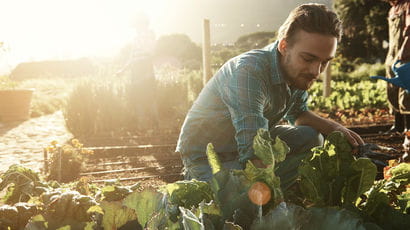
Get involved in sustainability
Help us make a truly sustainable university a reality. Information for staff and students to get involved in positive ways, plus handy tips for greener living.
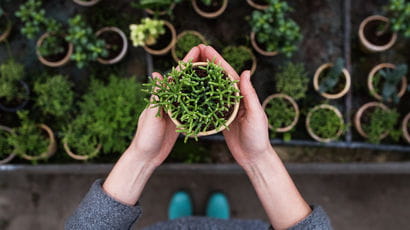
Sustainability awards
Details of local and national awards and the recognition UWE Bristol has received for our contribution to sustainability.
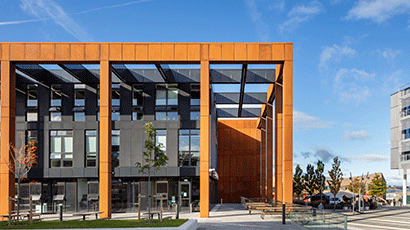
Education for sustainable development
Education for Sustainable Development (ESD) sits at the heart of UWE Bristol’s institutional strategy and teaching and learning framework.
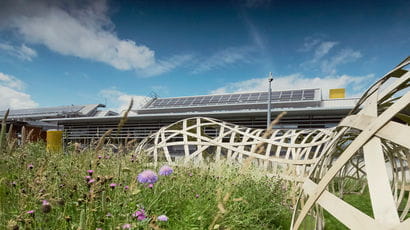
Carbon, energy and water management
Learn about our carbon, energy and water management plans and projects including our new, 900 bed student accommodation built to the highest sustainability standard of Passivhaus.
